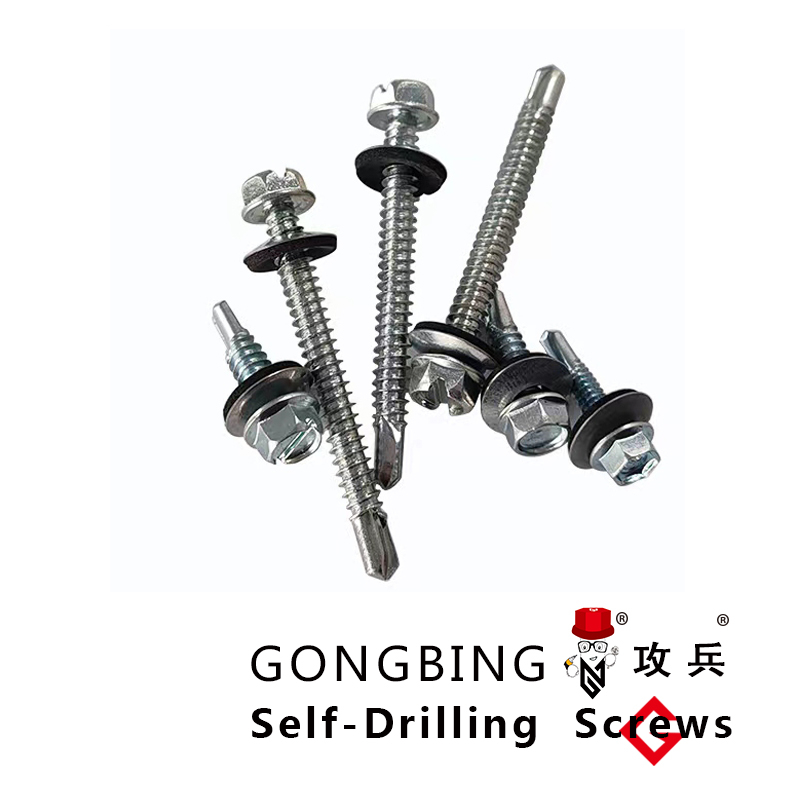chemical fastener
The Importance of Chemical Fasteners An Overview
In the world of engineering and manufacturing, fasteners play a pivotal role in ensuring the integrity and stability of various structures and products. Among the myriad of fasteners available, chemical fasteners have emerged as an innovative solution that offers unique advantages over traditional mechanical fastening methods. This article delves into the significance of chemical fasteners, their applications, benefits, and the future of this technology in various industries.
Understanding Chemical Fasteners
Chemical fasteners primarily refer to adhesives that bond materials together through chemical reactions. Unlike traditional fasteners such as screws, bolts, or rivets, which rely on mechanical interlocking, chemical fasteners utilize molecular bonds to create a strong, durable connection. These adhesives can be based on various chemistries, including epoxy, polyurethane, cyanoacrylate, and silicone, each tailored to meet specific bonding requirements.
Applications in Various Industries
The versatility of chemical fasteners allows for their application in numerous industries, including automotive, aerospace, electronics, construction, and consumer goods.
1. Automotive Industry Chemical fasteners are increasingly used in automotive manufacturing for bonding components such as panels, frames, and interior structures. Their ability to create lightweight and strong bonds helps manufacturers improve fuel efficiency and reduce overall vehicle weight.
2. Aerospace Sector In aerospace, where weight and strength are critical, chemical fasteners are employed to bond composite materials and metals, ensuring safety and performance. The ability to withstand high temperatures and harsh environments makes chemical adhesives indispensable in this field.
3. Electronics Chemical fasteners play a crucial role in electronics by providing insulation and protection to sensitive components. They are used to attach screens, circuit boards, and other elements, ensuring durability and reliability in consumer electronics.
4. Construction In the construction industry, chemical fasteners are utilized for bonding materials such as concrete, wood, and metals. They enable quick assembly and reduce the need for mechanical fasteners, which can hasten project timelines.
Benefits of Chemical Fasteners
chemical fastener

Several advantages make chemical fasteners increasingly popular
1. Weight Reduction Chemical fasteners can significantly reduce the weight of assemblies, a critical factor in industries like automotive and aerospace where even a slight decrease in weight can lead to improved performance and efficiency.
2. Enhanced Aesthetics Unlike mechanical fasteners, chemical fasteners do not leave visible marks or protrusions, resulting in cleaner, more aesthetically pleasing products. This aspect is particularly important in consumer goods and high-end electronics.
3. Vibration Resistance Chemical bonds provide excellent resistance to vibrations and impacts, making them ideal for applications where components are subjected to dynamic stress.
4. Corrosion Resistance Many chemical fasteners offer inherent corrosion resistance, which is crucial in environments exposed to moisture, chemicals, and extreme temperatures.
5. Design Flexibility The use of chemical fasteners allows engineers to explore more complex and innovative designs without being constrained by the limitations of traditional fasteners.
Challenges and Considerations
Despite their many advantages, the use of chemical fasteners is not without challenges. Factors such as curing time, temperature sensitivity, and the need for surface preparation can complicate their application. Additionally, the choice of adhesive must be carefully considered to ensure compatibility with the materials being bonded.
The Future of Chemical Fasteners
As technology advances, the future of chemical fasteners looks promising. Ongoing research is focused on developing new formulations that offer even greater performance under challenging conditions. Innovations in smart adhesives, which can dynamically adjust their bonding strength or respond to environmental factors, represent the next frontier in this field.
In conclusion, chemical fasteners have established themselves as an essential component in modern manufacturing and engineering. Their unique properties and advantages over traditional fasteners provide solutions to many of the challenges faced by various industries. As technology continues to evolve, we can anticipate even more sophisticated chemical fastening solutions that will enhance product performance, durability, and design flexibility.
-
Weatherproof Plastic Expansion Anchors for OutdoorЖаңалықтарJun.06,2025
-
Sustainability in the Supply Chain: Eco-Friendly TEK Screws ProductionЖаңалықтарJun.06,2025
-
Load-Bearing Capacity of External Insulation FixingsЖаңалықтарJun.06,2025
-
Double Head Bolts: Enhancing Efficiency in Industrial MachineryЖаңалықтарJun.06,2025
-
Corrosion Resistance in Chipboard Screws: Coatings for Wholesale DurabilityЖаңалықтарJun.06,2025
-
Butterfly Toggle Bolts : Enhancing Structural ResilienceЖаңалықтарJun.06,2025
